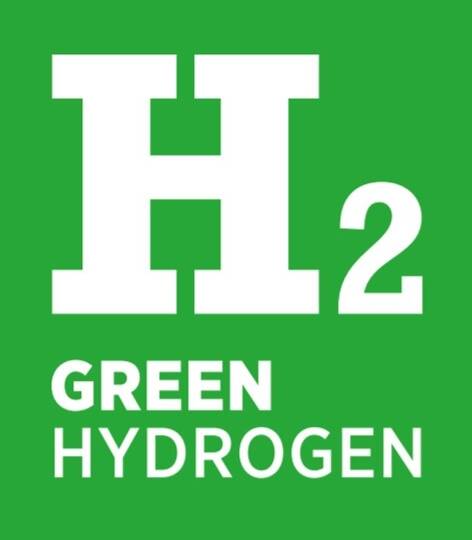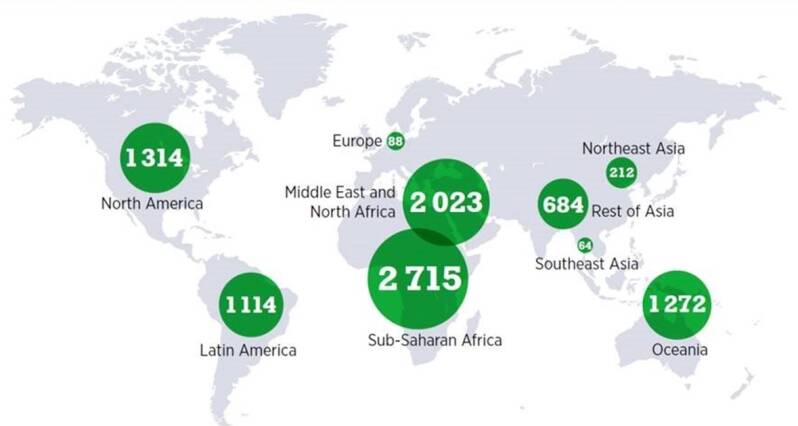Green hydrogen,the breakthrough factor in Africa’s advanced industrialisation
Green H2, the missing link of a secure future multi-opportunity 'Climate-Energy-Africa'

Raychelle Omamo, Cabinet Secretary, Kenyan Ministry of Foreign Affairs
‘We realise in Africa that we don’t make enough, that we are not industrialised. Therefore, we need new partnerships that will fundamentally change Africa’s integration into the world market. Africa cannot be that continent that is simply there to produce raw materials for others’.
CSIS Africa Program on January 28, 2022 https://www.csis.org/events/prioritizing-partnerships-africa



Anchoring energy-intensive industries in the developed world: a pipe-dream?
The multi-opportunity “Climate-Energy- Africa”: Opportunities for an ambitious policy. A deployment comparable to the reconstruction after a war.
Geopolitics of the Energy Transformation - The Hydrogen Factor (IRENA report-15/1/2022)


Global potential of solar energy. Annual average of the total horizontal irradiation kWh/m²
Global potential for the production of green hydrogen at less than USD 1.5/kg (exajoules): Africa 37%, Middle East 14%; North America 14%; Oceania 13%; Latin America 12%; Asia 9%; Europe 1%
Solar energy offers developing countries in the tropics a natural competitive advantage
Africa is endowed with an abundance of renewable electricity and 37% of the global potential for producing "cheap" green hydrogen. Is it still appropriate for the developed world to cling to energy-consuming industries when, thanks to green hydrogen, they can be produced in and shipped from developing countries without CO2 emissions? Especially in areas with a desire for modernity and a high need for steel, cement, aluminium, glass and fertiliser.
"Jobs & Modernity", that is what Africa is concerned about
The industrialisation of Africa can supply up to ten million decent jobs a year, suppress extreme ideologies, conflicts and forced migration and create a huge market for innovative upscale products and services.
- Countries with an abundance of low-cost renewable power could become producers of green hydrogen, using their potential to attract energy-intensive industries (iron, steel, cement, chemicals, petrochemicals, non-ferrous metals, ceramic materials, recycling electronic scrap)
- Participation in the hydrogen value chain can encourage African SMEs to also participate en masse in advanced international value chains, in the most diverse economic sectors, and create millions of formal jobs.
- Militarisation and cartelisation of the hydrogen trade is unlikely. The hydrogen market could be more democratic and inclusive and offer new opportunities for both developed and developing countries.
- In the mid-2030s, green hydrogen will compete globally with the cost of fossil hydrogen. Vertically integrated chains "production green hydrogen & production of energy-consuming raw materials", which escape from carbon taxes, can become competitive earlier. Their market value can skyrocket.
- It is crucial that the West works together with developing countries, rich in renewable energy, to deploy green hydrogen technologies and develop hydrogen industries:
- to decarbonise the global energy system;
- to create local and international value chains, green industries and millions of decent jobs;
- to contribute to global equality, inclusion and stability.
Europe & the delocalisation of energy-guzzling industries to Africa
Job-losses
- In the past, Europe already has lost hundreds of thousands of "indispensable" jobs in the closure of coal & steel, the demise of textiles, apparel and national airline champions, the closure of car assembly and consumer electronics. Partly under the influence of the demographic deficit of the West – and of China – today the West is suffering not from a lack of employment, but from a shortage of labour.
- Europe should compensate for the decline of energy-intensive activities by stimulating an ecosystem (1) that encourages investments in more innovative, more sustainable and more recyclable manufacturing industries; (2) that does not leave the industrialisation of Africa and its right to modern comfort to China alone.
Benefits
- Solid European industrialists and SME value chain partnerships are able, out of well-understood mutual self-interest, to create a new market with nearly 25% of the world's active population (African Continental Free Trade Area - AfCFTA), in the EU backyard with historical-cultural links;
- 'Net Zero' emissions;
- Containment of illegal migration;
- Energy security ;
- When delocating energy-consuming industries to Africa European green wind and solar energy can be reserved for affordable residential use and for less energy-intensive, more recyclable industries.
More
- Green hydrogen and the developing world (More excerpts from the IRENA-report)
- Africa, the solution, not a victim of global climate change (The positive narrative)
- Africa's advanced and labour intensive industrialisation in four phases (SME partnerships Africa-Europe)
PS. Steel industry that gets rid of the addiction to coking coal and blast furnaces can in the long term reduce CO2 emissions more than subsidised electric passenger cars. Blast furnaces are responsible for eight to ten percent of global carbon dioxide emissions. Direct-Reduced-Iron technology relies on hydrogen and renewable energy. This could lead to a revolution in "Net Zero" siderurgy...


(Jan 29th 2022 edition)
Lakshmi Mittal transformed steelmaking. Can his son do it again?
… About half of ArcelorMittal’s steelmaking revenue comes from Europe. The region is laden with coal-burning blast furnaces, the carbon-heaviest of steelmaking technologies, source of up to a tenth of global carbon-dioxide emissions. Some firms are opting to replace these with new direct-reduced-iron (DRI) and electric-arc-furnace (EAF) plants. Blast-furnace steelmaking is doubly carbon-intensive: it uses coking coal to soak up oxygen from iron ore, as well as dirty energy to heat the furnaces. DRI-EAF technology can use hydrogen and renewable energy instead. It could mark a revolution in steelmaking…
… In the long run subsidies for electric vehicles may curb emissions by less than curing the steel industry’s coal addiction

Africa,the positive narrative
Africa, the solution, not a victim of global climate change
Africa's advanced industrialisation in four phases
“Jobs”, that is what Africa is concerned about
Green hydrogen and the developing world
Africa's economic transformation: the role of Chinese investment
Future of Work in Africa. Role of Digital Technologies
Turning challenges into solutions


Maak jouw eigen website met JouwWeb